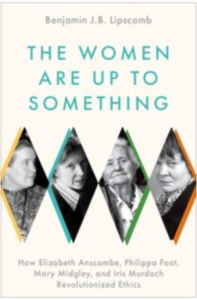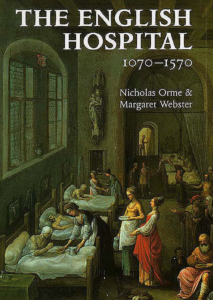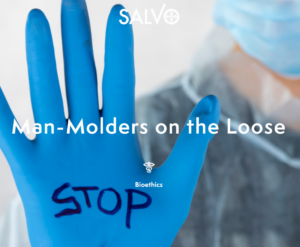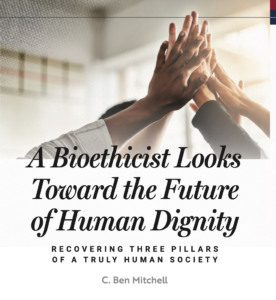
What We’re Reading

C. Ben Mitchell, Ph.D.
Distinguished Fellow
The Tennessee Center for Bioethics & Culture
“A Call to Christian Academics Regarding Medical and Technological Ethics.”
Larry Locke is a Professor and Associate Dean of the McLane College of Business at the University of Mary Hardin-Baylor and a Research Fellow of LCC International University. This insightful essay issues a call for Christian academics to invest themselves in the medical ethical questions of today. “Now is the time,” he concludes, “for Christian academics and Christian ethicists to apply themselves and all their skill to these and other looming questions. Our generation has been gifted with an opportunity to bring the wisdom of Scripture and of our forebearers to point us all towards a world that is both good and safer for us all.” Amen!
Benjamin J.B. Lipscomb, The Women Are Up to Something: How Elizabeth Anscombe, Philippa Foot, Mary Midgley, and Iris Murdoch Revolutionized Ethics
The discipline of ethics underwent a revolution at the beginning of the 20th century with the 1903 publication of G. E. Moore’s infamous, Principia Ethica, in which he argued that the notion of “good” is a simple, unanalyzable property like “yellow”. In other words, talk about good is an intuition. Others argued that when we say something is good, we are using emotive language that just means something like, “yay!” or “I love it.” By mid-century four brave women philosophers in Oxford mounted a counter-revolution that, as Lipscomb argues in extraordinarily accessible prose, saved ethics as an academic discipline. Don’t miss this one.
Nicholas Orme and Margaret Webster, The English Hospital, 1070-1570
A well-researched and beautifully printed volume on the early history of hospitals in England. Orme is a recently retired professor of history and Webster is a nurse by training and, later, a historian at Exeter University. “The impetus towards more formal hospital institutions,” they demonstrate, “came with the advent of Christianity [in England] in 597.” This comprehensive treatment covers everything from hospital architecture to care of the dying. Although published in 1995, good copies can be had for purchase or found in libraries.
What We’re Writing

D. Joy Riley, M.D., M.A.
Executive Director
What is WHO Doing, Equating Humans with Animals, Plants, and Ecosystems?
A post on Bioethics from the blog
by D. Joy Riley
June 21, 2023
In January 2023, The Lancet published an article titled, One Health: a call for ecological equity. “One Health” is a revolutionary idea that has been percolating for more than two decades.
The World Health Assembly (WHA), the forum for governing the World Health Organization (WHO), is poised to enact much of the “One Health” agenda. If this is accomplished, what happens in medical exam rooms and with your personal information — and many points in between — will be radically changed.
A Bioethicist Looks
Toward the Future
of Human Dignity (PDF)
C. Ben Mitchell
In a scathing criticism of the President’s Council on Bioethics under the Bush administration, Harvard psychologist Steven Pinker said in a 2008 edition of the New Republic magazine, “The problem is that ‘dignity’ is a squishy, subjective notion, hardly up to the heavy- weight moral demands assigned to it.” This was indicative of a future that will require almost no end to shoring up the pillars of human dignity.
To that end, three important renovation projects come to mind as necessary for a truly human future where inherent value is understood and celebrated: the reclamation of theological anthropology, the reappropriation of Christian-Hippocratism in medicine, and a recommitment to the Great Commandment.
See page 42ff of the above linked article.






